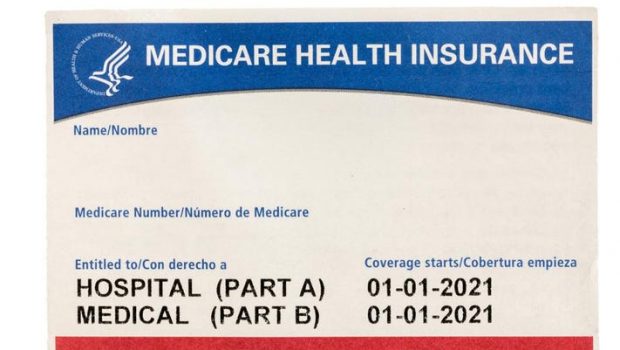Six Things That You Must Know About Medicare Reimbursement Rights
Medicare is now a “super lien” that requires special handling
One of the major problems that attorneys face is that Medicare is not very responsive to attorneys’ needs. There are many stories of attorneys waiting months and even years to get Medicare to respond to their desire to finalize a lien. Sometimes, the entire settlement could be held up because of the fact that Medicare is not responsive. Not only does this potentially create a very unhappy client, but it’s also bad for cash flow.
Possible solutions
Thankfully, it is not all bad news. There are solutions to the Medicare problem. It is important to note, however, that any solution will have its problems and downside. Each solution must be evaluated in light of the specific problem with Medicare and the possible problems that may be associated with the solution.
For plaintiffs’ attorneys, it is imperative that they quickly find out whether or not their client received Medicare benefits. This can be done in the early phases of litigation. The attorney can ask the client in a questionnaire whether or not the client received Medicare benefits. In addition, the attorney can obtain copies of insurance explanation of benefits documents to make sure there is no reference to Medicare. As a general rule, if the person is disabled or elderly, there is a good chance Medicare is paying the bill.
If, however, an attorney identifies that Medicare has paid for some or all of the medical bills, they can contact the Center for Medicare and Medicaid services (“CMS”) to determine if (or how much) benefits were provided. It is important to note that it is critical to identify the nature of Medicare’s claim early in the representation of the matter. This step can often be a very long and arduous process.
One of the major reasons an attorney should establish the nature of the preliminary’ lien is so that the attorney will be in a better position to identify what demands should be made to settle the case, according to Los Angeles small business lawyer at California Business Lawyer & Corporate Lawyer, Inc. In many cases that I’ve mediated, the attorneys will make their demands for settlement and then later come to learn through the mediation process that the lien is greater than they had expected. This could make it extremely difficult to settle the case.
Another common thing that is often overlooked is the need to notify the client about the nature of the Medicare lien. Many times, clients are unaware of the Medicare lien until the day of the mediation. This can create many obstacles to getting the case settled; especially when the amount of recovery is not significant.
There are several possible solutions that an attorney may choose to use to protect both his or her client as well as protecting against personal exposure to the full lien and a possible malpractice action, said corporate attorney Los Angeles, Nakase Law Firm. With each possible solution, however, there are possible complications.
State that the client is responsible for liens
Advantages:
This solution is quite easy to implement and does not require significant involvement with Medicare.
Disadvantages:
This solution, however, is probably the least effective in making sure that all parties are protected. That is so because Los Angeles litigation attorney are relying on the client to make sure that she will protect the lien. Here, if you distribute the sums without making sure that Medicare is paid, it is entirely possible that the client will spend the money and not pay Medicare. Therefore, this solution does not effectively protect Medicare or you.
- Expressly state in the settlement agreement that the plaintiff’s attorney will indemnify the defendant for any claim made by Medicare
Advantages:
Because defendants are concerned that they will be found to be liable to Medicare, they often want to make sure that Medicare is on the settlement check. By agreeing that the plaintiffs’ attorney will indemnify the defendant for any claim made by Medicare, it will alleviate the defendant’s concern that there will be nobody to collect against if Medicare is not paid. (Remember, defendants are worried that they will be held liable and thus want protection.) In addition, by eliminating that concern, you can ease cash flow to make sure that you reserve sufficient funds in your trust account to protect Medicare. They should ordinarily not be too much of a problem since you will be making sure that you protect Medicare anyway.
Disadvantages:
Anytime you deal with Medicare, it can be a long ordeal. There are stories of attorneys who have placed money in their trust account and have kept it there for several years waiting for Medicare to respond. This could mean significantly more work for you as well as keeping a file open much longer.
- Ask the defendant to issue two checks: One to you and the client, and one to Medicare and your trust account
Advantages:
As noted above, defendants are concerned about possibly being liable to Medicare after the settlement is long gone. Having Medicare on the check can address those concerns. Moreover, by allowing two separate checks, you will not have to worry about holding up the entire settlement proceeds.
Disadvantages:
Like the last proposal, time and effort dealing with Medicare is a major problem.
- Ask the defendant to interplead the amount at issue with Medicare
Advantages:
Because of the inordinate amount of time involved when dealing with Medicare, you may be able to speed the process up by having the defendant filing a separate interpleader action against your client and Medicare and depositing the Medicare amount into the court. This may seem at first blush to be a very difficult process, but it forces Medicare to address the issue of the lien.
Medicare will be forced to answer the complaint, and then appear before a judge explaining their position. This method can create substantial judicial pressure on Medicare to identify the lien amount and possibly even compromise the lien.
Disadvantages:
There is one obvious disadvantage. You will have to represent your client in this additional lawsuit. In addition, a defendant might complain about having to do the extra work of filing a separate action.
The Medicare lien and reimbursement rights are simple to understand, but very complicated to address in real life. Handling a claim that involves
Medicare can create a lot of extra work for both sides. However, if careful steps are taken, an attorney can manage to walk through the Medicare minefield unscathed.
Tweet








































